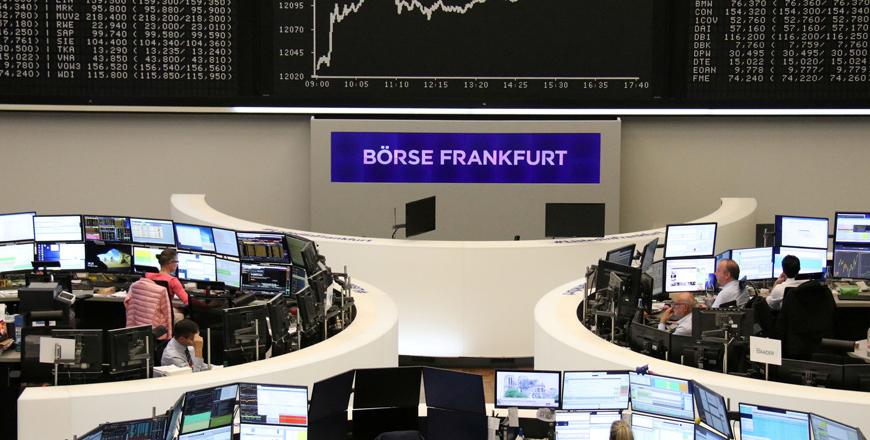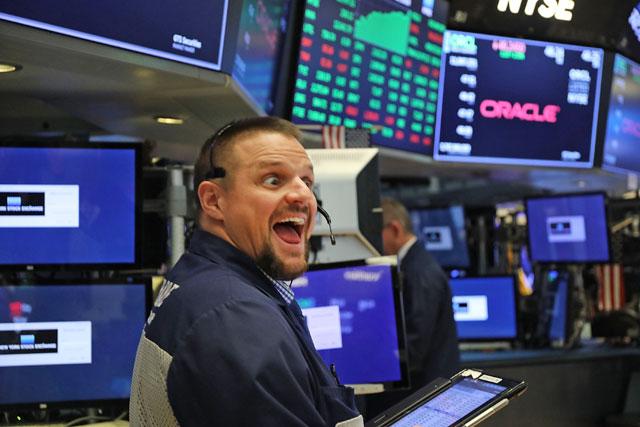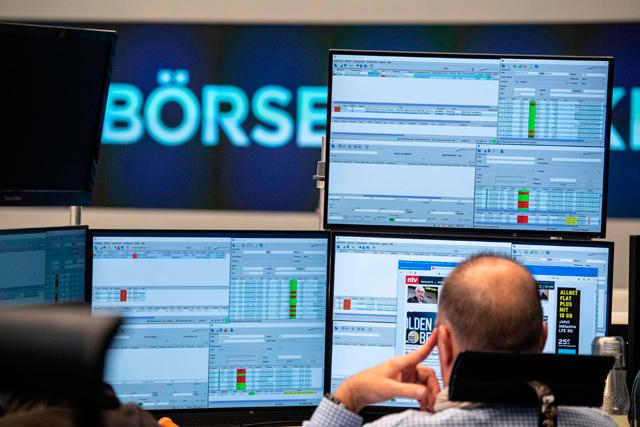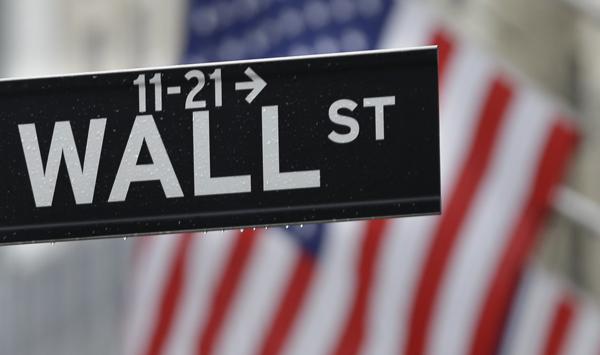You are here
Stocks march to new highs as European volatility vanishes
By Reuters - Apr 16,2019 - Last updated at Apr 16,2019

The German share price index DAX graph is pictured at the stock exchange, in Frankfurt, Germany, on Tuesday (Reuters photo)
LONDON — Stock markets rose on Tuesday to new six-month highs after reassuring data about the health of China's economy and economic sentiment in Germany helped investors brush aside disappointing bank earnings.
The latest leg higher in a three-month long global rally comes as a degree of calm has descended across financial markets, with European stock volatility falling to its lowest since January 2018, exacerbated by a shortened trading week for the Easter holidays.
The pan-European STOXX 600 topped its strongest since October, and the MSCI world equity index also rose to a new six-month high.
Germany's DAX extended its gains to rise 0.66 per cent after the monthly ZEW survey showed the mood improved among German investors for the sixth consecutive month, while Britain's FTSE 100 also strengthened.
Wall Street was set to open higher.
The broader moves were tempered, however, after a Reuters story quoted European Central Bank sources expressing doubt about a projected eurozone growth rebound.
Italian assets sold off after the Bank of Italy warned that the country's deficit would breach European Union regulations in 2020.
Natixis Cross Asset Strategist Florent Pochon said investors were mainly focused on US earnings, especially after the first flurry of bank results made for mixed reading.
"After the strong rally we have seen in equities, people are now waiting for the next catalyst," Pochon said. "We do expect some more positive data from Europe which should give a bit of fresh air [to European assets]."
The US-China trade dispute, signs of slowing global corporate earnings and fears about an economic downturn have weighed on riskier assets in the past year, but investors have been quick to seize on positive news to keep the bull-market running.
All eyes are now on Chinese quarterly economic growth data due on Wednesday. After a worrying start to the year, Chinese numbers have been more positive as authorities ramped up stimulus measures, soothing investor fears about a slowdown in the world's second-biggest economy.
German government bond yields rose three basis points to 0.058 per cent, reflecting the positive sentiment as investors bought into riskier assets.
Lira under pressure
Turkey's lira was stuck near its weakest levels since October, with tumbling industrial production numbers adding to concerns about the country's economy. The lira was off 0.2 per cent at 5.8150 by 10:50 GMT.
After a rally to five-month highs on tightening global supplies, crude oil paused on the prospect of Russia and OPEC boosting production to fight for market share with the United States.
US West Texas Intermediate rose slightly to $63.5 per barrel, while Brent crude, the global benchmark, was little changed at $71.22 a barrel.
Spot gold prices dipped as risk appetite dented demand for the precious metal's save-haven credentials.
In currency markets, the euro dipped 0.2 per cent after the Reuters story on ECB sources questioning forecasts for an economic rebound. The single currency later recovered to $1.1301, down marginally, while the dollar was unchanged.
The Australian dollar dived after the central bank said an interest rate cut would be appropriate should inflation stay low and unemployment trend higher.
The Aussie shed 0.4 per cent to $0.7144.
Many investors are now waiting on Chinese gross domestic product. A Reuters poll forecast first-quarter growth to have cooled to 6.3 per cent, the weakest pace in at least 27 years, but a flurry of measures to boost domestic demand may have put a floor under slowing activity in March.
Stephen Gallo, European head of FX Strategy at BMO Capital Markets, said investors should scrutinise price moves in oil, emerging market equities and base and precious metals for the remainder of this week.
"For the most part, those indicators demonstrate that the global 'reflation and growth stabilisation trades' have already come a long way," he wrote in a research note to clients.
"This further emphasises the fact that, broadly speaking, investors are waiting for catalysts, which will take the form of either 1) big news on trade talks, 2) a sustained and convincing shift in the economic data one way or another or 3) new central bank action."
Related Articles
BENGALURU — Emerging market stocks hit one-week highs on Wednesday as a strong start to the US corporate earnings season encouraged investor
LONDON — Equities rebounded while oil and safe-haven gold retreated on Tuesday as fears of a Middle East conflict abated, but investors rema
LONDON — European stocks and oil prices snapped a four-day losing streak and a rally in bond markets fizzled out on Thursday, as investors b














